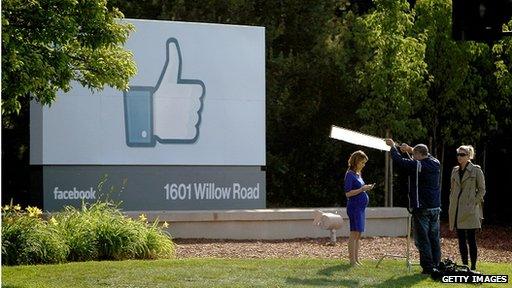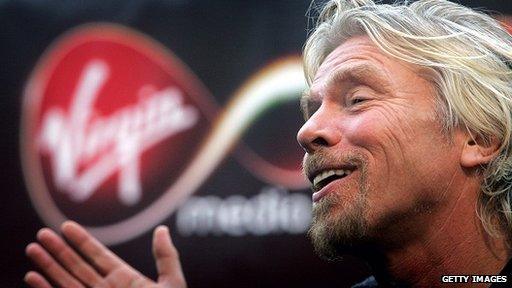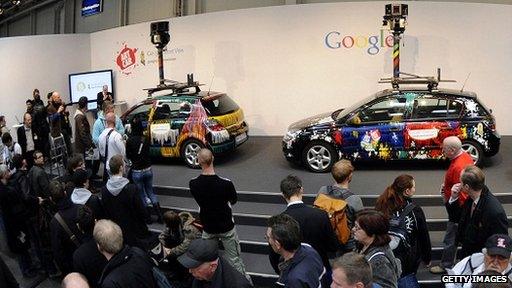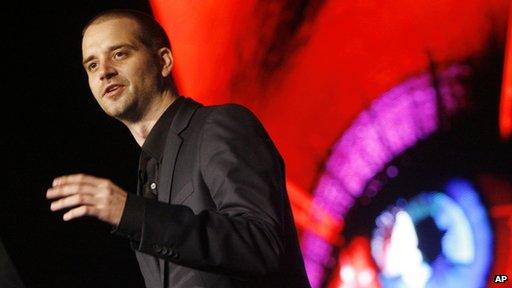Tech 2013: BBC News Online's most read technology stories
- Published

It's been a busy year in technology. From Edward Snowden's NSA/GCHQ leaks to a severe decline in PC sales; from the launch of the PlayStation 4 to the aborted sale of Blackberry; from Microsoft buying Nokia's handset business and preparing to part ways with Steve Ballmer to the releases of Samsung's bestselling Galaxy S4 handset and Android KitKat.
Google Glass caused a privacy storm even though the photo-taking eyewear has yet to be released; Candy Crush Saga became a gaming sensation for its British developer King; self-deleting photo app Snapchat reportedly turned down a $3bn (£1.8bn) offer from Facebook; and what seemed like hundreds of 3D printers, smartwatches and tablets flooded onto the market - many bankrolled by crowdsourced cash.
None of the above made our most-read list - based on which tech story attracted the most clicks and finger flicks - for each month of the year.
But here is what did pique your interest:
The tablet that turns itself lumpy
"Why settle for flat?" asked California-based Tactus Technology.
The firm's innovation - the ability to raise transparent buttons out of a touchscreen's surface - has still to make it to market.
But if interest in a demonstration unit on display at the Consumer Electronics Show (CES) in Las Vegas is anything to go by, then much of the public is unconvinced by current tap-to-type flatscreen keyboards.

The thumbs-up logo may be Facebook's iconic icon, but it was alleged that the idea for the social network's "like" button was in fact the invention of a dead Dutch programmer.
Rembrandt Social Media - a Philadelphia-based firm which possesses Joannes Jozef Everardus van der Meer's patents - said the approval technique had been developed for an earlier failed network called Surfbook.
Mark Zuckerberg's legal team failed to convince a judge to dismiss Rembrandt's claims at a hearing earlier this month after he ruled there were still questions to be answered, according to a report by the Law360 news site, external.
However, the judge did throw out the specific allegation of "wilful infringement" because he said there was no evidence Facebook had been aware of Mr van der Meer's work.
The BBC's Rory Cellan-Jones explains why the attack is like a "motorway jam", alongside expert David Emm from Kaspersky Lab
A report that the internet had been slowed by what was described as the biggest Distributed Denial of Service (DDoS) attack in history proved to be the BBC tech team's most read story of the year.
The assault on the Spamhaus Project's websites, mailservers and nameservers was said to have peaked at 300 gigabit per second's worth of data.
A London-based teenager and a 35-year-old Dutchman were later arrested in connection with the incident.
However, Kaspersky Lab's claim that other users would have suffered slow downloads as a consequence has become a matter of controversy with some claiming any delays, external were more likely to have been caused by an unrelated damaged data cable.

A broadband bill that stated Virgin Media had failed to receive a monthly charge because the subscriber had died and imposed a late payment fee as a consequence spread like wildfire after the man's son-in-law posted a photo of it on Facebook, external.
At the time our report was published the post had been shared just over 53,000 times. That number later grew to 98,250.
Jim Boyden said he had only resorted to posting the details on the social network after Virgin Media's call centre failed to resolve the matter. The firm later apologised and blamed the error on an automated system.
Microsoft's Don Mattrick talks about the Xbox One
Microsoft beat Sony to show off the look of its next-generation console - the Xbox One - half a year before it went on sale.
The launch plans later ran into trouble when planned restrictions on second-hand games sparked a backlash that its rival Sony exploited at the E3 games show, prompting a U-turn.
The row doesn't seem to have affected sales. Microsoft recently said more than two million Xbox Ones had been sold, putting it roughly level-pegging with the PlayStation 4.
But the former Xbox chief Don Mattrick is no longer about to enjoy the glory - he has jumped ship to try and turn around online games developer Zynga.

Google's illegal collection of personal data gathered from wi-fi networks detected by its Street View mapping cars bounced back into the headlines when the UK's Information Commissioner's Office ordered the firm to delete the information within 35 days.
The firm had previously said it would wipe the data, but subsequently admitted it had "accidentally" retained discs containing the records.
This wasn't the only time Street View got Google in trouble this year.
In November Brazil threatened a $450,000 fine over allegations that its citizens' private data had also been collected by the vehicles - something the firm denied.

New Zealand-born Barnaby Jack was a week away from giving a high-profile presentation about the vulnerability of pacemakers and other medical devices to hacks when he died in July.
The security researcher was only 35-years-old when his body was found at his San Francisco apartment.
The cause of his death has never been reported. The BBC was unable to reach a spokesman from San Francisco's Medical Examiner's office.
Update: A coroner's report, made public in January, said Mr Jack had overdosed on a mix of heroin, cocaine and other drugs.

Cold calls from marketing companies are the bane of many a phone-owner.
But one Leeds-based businessman has turned the phenomenon to his advantage by setting up a premium-charge 0871 line as his contact number.
At the time of the report he had made £300 from the idea, and says that has now risen to £450.
He describes it as "free money", but cautions anyone thinking of doing likewise to carefully read the related rules to avoid being fined.
The BBC's Richard Taylor tests the new Apple iPhone 5S and 5C smartphones
Apple's latest iPhone range was our second most read story of the year, showing there is still huge interest in anything the US tech firm does.
Those wanting a bigger screen may have to wait until the next generation, but this time round the 5S gained from a fingerprint sensor offering an alternative to typed-in passwords.
That has helped the handset prove more popular than its cheaper 5C sibling that lacks the facility, at least with "early adopters".
In the UK the 5S outsold the 5C three-to-one during their first six weeks on sale, according to a report by market research firm Kantar Worldpanel, external.
Test flight of the pilotless fighter jet controlled from the ground as it flew from a Florida base to the Gulf of Mexico.
A test flight of a Lockheed Martin F-16 jet with an empty cockpit proved popular after Boeing released a video of the event.
The firm said the remote-controlled flight over the Gulf of Mexico attained 7Gs of acceleration but was capable of carrying out manoeuvres at 9Gs - something that might cause physical problems for a pilot.
As unusual as it might seem, the United States Air Force has in fact converted ageing jets into unmanned aircraft as far back as the 1970s, allowing them to be used as training drones for its pilots to practise against.

Last month Google agreed to remove a satellite image from its Maps service after a father alerted the firm to the fact it appeared to show the body of his son who had been shot dead in 2009.
The company said that it was the first time it had agreed to a bring forward an update to one of the satellite photos it used.
Drone delivery - fact or fiction?
Many doubt Amazon will ever operate drone-based deliveries, but that didn't prevent the firm generating a huge amount of publicity with a video showing how the service might work.
It later emerged that the film had been shot outside the US because, external it would have been illegal to operate such a commercial drone in the country.
Cynics noted that the footage's release coincided with Cyber Monday - a day US online retailers offer bargains following the Thanksgiving weekend.
But it soon emerged that two of the world's other biggest parcel delivery services, DHL and UPS, are also testing out their own unmanned aerial vehicles.
- Published17 December 2013
- Published12 December 2013
- Published31 December 2012
- Published28 December 2012